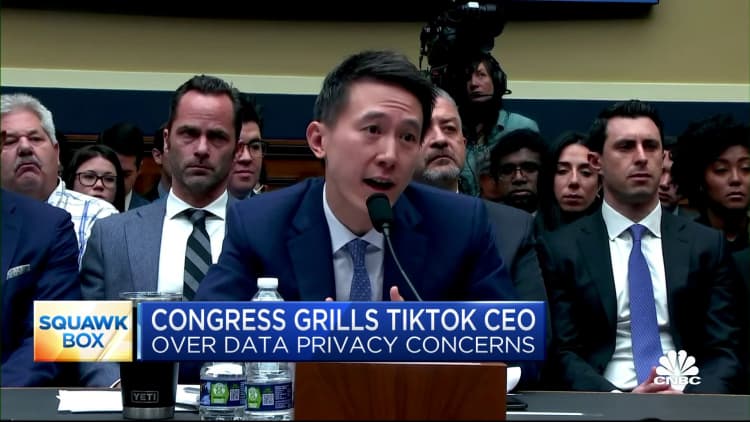[ad_1]
Momo Productions | Digitalvision | Getty Images
A new bipartisan bill unveiled Wednesday would require parental consent for anyone under 18 to use social media.
The Protecting Kids on Social Media Act would also bar platforms from using algorithms to feed content to minors and would set the minimum age to use the platforms to 13. It also would create a pilot program for a new, age-verification credential that could be used to enroll on social media platforms.
This latest push from legislators to build new guardrails for kids’ online safety is occurring as similar actions are being taken at the state level. Some state laws — like one in Utah that would give parents access to kids’ private messages — have raised concern among some civil society groups for potentially putting kids further in harm’s way depending on their family situations.
The new proposal, backed by Sens. Brian Schatz, D-Hawaii, Tom Cotton, R-Ark., Chris Murphy, D-Conn., and Katie Britt, R-Ala., would give parents across the country profound new control over their kids’ access to social networking services like Meta’s Facebook and Instagram, Snap’s Snapchat and TikTok.
Many parents have pleaded for lawmakers to give them more tools to protect their kids online, though some feel that parents are overly burdened with the duty to monitor platforms that can be difficult to navigate
In addition to parental consent to use social media, the bill requires such companies to “take reasonable steps beyond merely requiring attestation” to verify users’ ages. That is likely to raise privacy concerns given that it can be difficult to narrow a user’s age without some sort of government ID or facial scan.
The bill says that “existing age verification technologies” should be taken into account and that information collected for age-verification purposes shouldn’t be used for anything else.
While age-verification tools are still somewhat limited, the bill also aims to expand them through a pilot program to explore free “secure digital identification” credentials for U.S. citizens.
The program would be run by the Commerce Department and would seek to create a new, highly secure credential tool based on government-issued documents that once issued could be used to verify users’ ages for enrolled social media platforms, or their parent/guardian relationship to a minor user.
Soon after the bill was announced, tech-backed industry group NetChoice, which has sued California over its Age-Appropriate Design Code, slammed the legislation in a statement, saying it “would require massive, widespread data collection and retention, undermining Americans’ privacy and security. It would also deprive parents of their constitutional right to make decisions about what’s best for their kids online.”
WATCH: TikTok hearing was an ‘unmitigated disaster’ for social media app, says Stanford’s Jacob Helberg

[ad_2]

